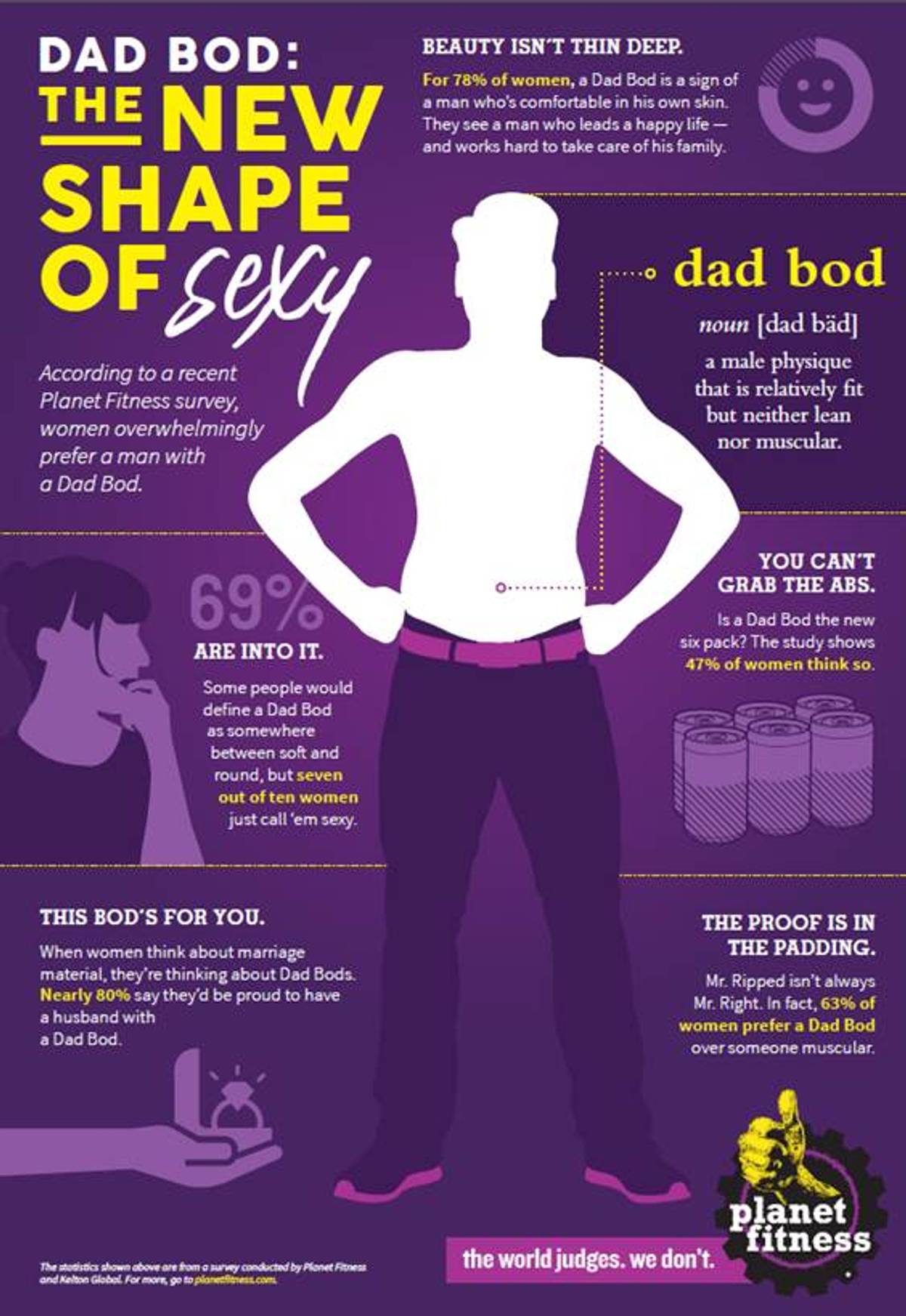Remember when only women were subjected to unreasonable standards of shapeliness? Ha!
Last week I received an email with the subject line, “Give Dad a 6-Pack!” It was not referring to craft beer. No, it was a press release from Spanx, the smoosh-down-your-lumpy-bits women’s intimate apparel company which now makes eight varieties of “physique-improving, game-changing” undergarments for men. You might buy the dad in your life the “Zoned Performance Tank” ($75), which features “compression zones” that squeeze the chest and “target abs and torso.” Or maybe Abba would prefer the Slim-Waist™ Boxer Brief ($48), which “takes inches off your gut.” I don’t know! I’m not a father! Still, I must imagine that receiving a gift of body-shaping underwear is the equivalent of getting an ironing board or set of festive hand weights on Mother’s Day: There is a certain message being given, intentionally or not. One the recipient may not be delighted to receive.

It’s not surprising that there’s a market for squeezy Spandex man-panties. Men are increasingly under pressure (as it were) to look youthful, buff, taut, and toned in superhero style. And they’re responding to that pressure. According to the American Society of Plastic Surgeons’ latest report, the incidence of male buttock lifts increased 567 percent between 2000 and 2016; lower body lifts increased 363 percent in the same time period; and thigh lifts and tummy tucks went up 117 percent and 114 percent respectively. Because true equity means impossible beauty standards for all! (Not that this brave new world will come with pay equity for women or anything. Let’s not get too crazy.)
The gazillionaire founder of Spanx is not Jewish, but her husband, Jesse Itzler, is. In fact, he was seated next to me at the Jewish Book Council’s annual Meet the Author event last year. This is a gathering at which authors have the opportunity to pitch their books to JCCs, synagogues, and Jewish federations and cultural centers from around the country. Itzler’s book, Living With A SEAL, was about how he got in shape by hiring a Navy SEAL to live in his swank Park Avenue apartment (along with the Spanx entrepreneuse and the couple’s four kids) and put him through a brutal daily training regimen to get him into the best shape of his life. (Pre-fitness-memoir, Itzler co-founded a private jet company, bought part of a coconut water company, became an owner of an NBA team, and was a rapper known as Jesse Jaymes. In that last incarnation, he had the ‘90s hits “Shake It Like a White Girl” and “College Girls Are Easy.”)
But where was I? Oh right. I’m not sure that a SEAL-Team-6 level of fitness obsession or a Elastane-constricted standard of bodily perfection is necessary from a Jewish perspective. Judaism is certainly pro-health. Everybody’s favorite 12th century MD, Maimonides, wrote in The Laws of Personal Development (Hilchat De’ot) that “maintaining a healthy and sound body is among the ways of God.” Maimonides said that before one eats in the morning, one should “engage one’s body and exert oneself in a sweat-producing task.” He also suggested eating only when hungry, drinking only when thirsty, and peeing and pooping as soon as one feels the urge (“[a man] should never put off relieving himself, even for an instant”). But what’s most important, Maimonides wrote, is to strive for the Golden Mean, a middle course ‘between two equally bad extremes, the too much and the too little…one of which is characterized by an exaggeration, the other by a deficiency.”

This fits with the Jewish tradition, which is much older than Maimonides, of “shmirat ha’guf”—guarding the body. The phrase is often paired with “shmirat ha’nefesh”—guarding the soul. A healthy body helps one focus on spirituality, but it’s not a substitute for spirituality. The guf, the body, is after all only a kli, a vessel, for the soul. As Maimonides put it, “If a person will always carefully discriminate in regard to his actions, directing them to the medium course, he will reach the highest degree of perfection possible to a human being, thereby approaching God.”
In other words, striving for a perfect body and a perfect fitness regimen aren’t the way to go, Jewishly speaking.
This is in tune with another Father’s Day press release I received last week, breathlessly discoursing upon the desirability of “dad bod,” aka the slightly doughy male physique. In a telephone survey of over 2,000 Americans, I learned, 69 percent of female respondents said they found dad bods attractive; 78 percent said a dad bod is “the sign of a man who’s comfortable in his own skin.” (To parse the data a bit more granularly, 69 percent of all women but 74 percent of mothers said they were cool with dad bod. This is, perhaps, an indication that mothers are realists, and also that mothers may be experiencing post-kid spread of their own and are therefore less prone to judge. I’M ONLY HYPOTHESIZING.)
What I found especially amusing was that the survey was commissioned by a gym. Planet Fitness has staked its brand identity on being “the Judgement Free Zone” (compared to some other gyms, which strive for a more exclusive, super-sleek, douche-y vibe). And you know what? This kind of chill attitude toward the male corporeal form is pretty Maimonidean.
Related: Jewish Body Week [Tablet series]
Marjorie Ingall is a columnist for Tablet Magazine, and author of Mamaleh Knows Best: What Jewish Mothers Do to Raise Successful, Creative, Empathetic, Independent Children.
Marjorie Ingall is a former columnist for Tablet, the author of Mamaleh Knows Best, and a frequent contributor to the New York Times Book Review.